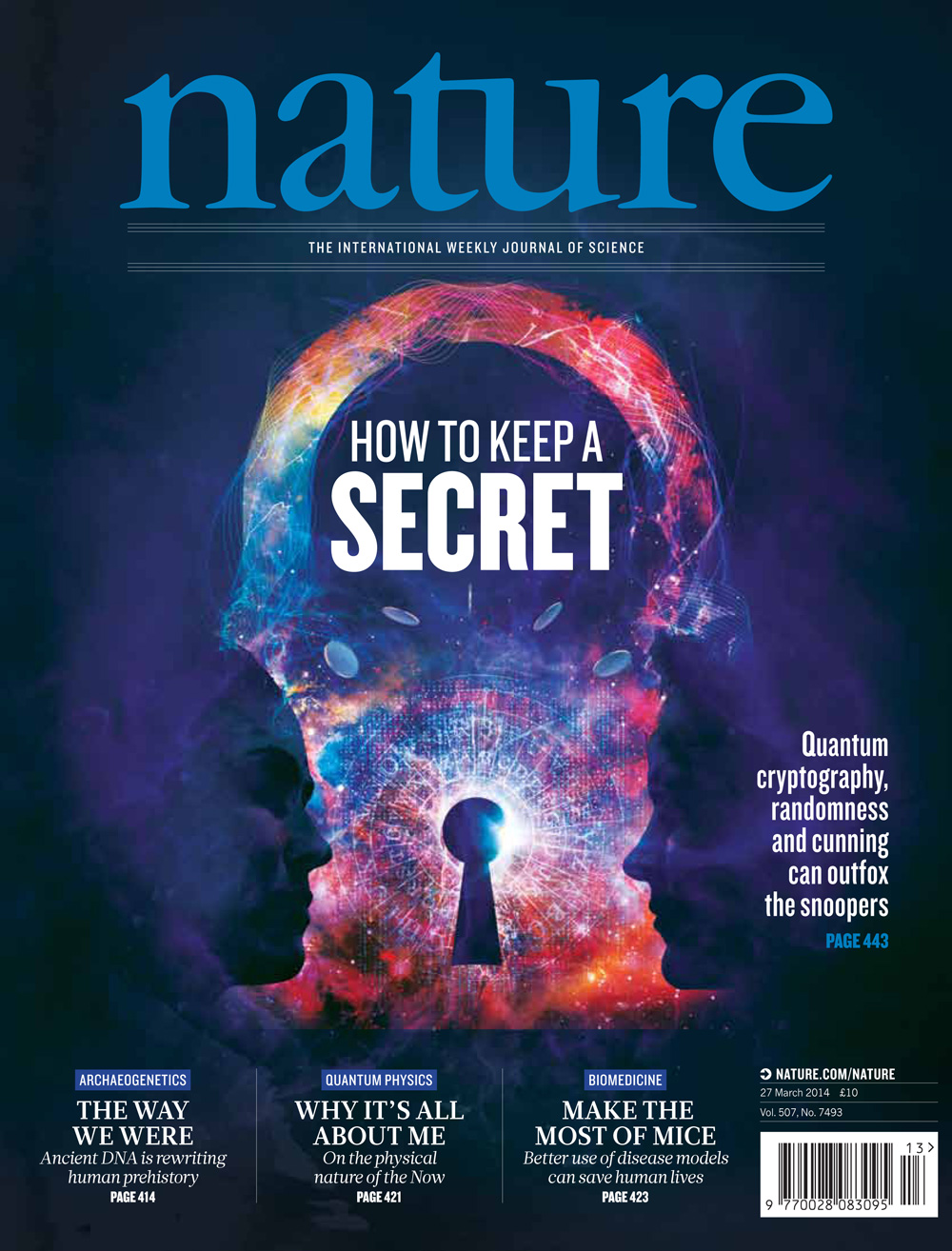Keeping secrets in a world of spies and mistrust
March 31, 2014

(Credit: Nature)
An article in Nature reviewing developments in quantum cryptography describes how we can keep our secrets secret even when faced with the double challenge of mistrust and manipulation.
In the March 27 issue of Nature, Center for Quantum Technologies at the National University of Singapore ( CQT)’s Director Artur Ekert and Renato Renner review what physics tells us about keeping our secrets secret.
“Recent developments in quantum cryptography show that privacy is possible under stunningly weak assumptions about the freedom of action we have and the trustworthiness of the devices we use,” says Ekert, who is also Professor of Quantum Physics at the University of Oxford and Lee Kong Chian Centennial Professor at the National University of Singapore.
Over 20 years ago, Ekert and others independently proposed a way to use the quantum properties of particles of light to share a secret key for secure communication. The key is a random sequence of 1s and 0s, derived by making random choices about how to measure the particles (and some other steps), that is used to encrypt the message. In the Nature Perspective, the authors describe how quantum cryptography has since progressed to commercial prospect and into new theoretical territory.
Even though privacy is about randomness and trust, the most surprising recent finding is that we can communicate secretly even if we have very little trust in our cryptographic devices — imagine that you buy them from your enemy — and in our own abilities to make free choices — imagine that your enemy is also manipulating you. Given access to certain types of correlations, be they of quantum origin or otherwise, and having a little bit of free will, we can protect ourselves. What’s more, we can even protect ourselves against adversaries with superior technology that is unknown to us.
“As long as some of our choices are not completely predictable and therefore beyond the powers that be, we can keep our secrets secret,” says Renner, Professor of Theoretical Physics at ETH Zurich, Switzerland. This arises from a mathematical discovery by Renner and his collaborator about “randomness amplification”: they found that a quantum trick can turn some types of slightly random numbers into completely random numbers. Applied in cryptography, such methods can reinstate our abilities to make perfectly random choices and guarantee security even if we are partially manipulated.
Abstract of Nature paper
Among those who make a living from the science of secrecy, worry and paranoia are just signs of professionalism. Can we protect our secrets against those who wield superior technological powers? Can we trust those who provide us with tools for protection? Can we even trust ourselves, our own freedom of choice? Recent developments in quantum cryptography show that some of these questions can be addressed and discussed in precise and operational terms, suggesting that privacy is indeed possible under surprisingly weak assumptions.